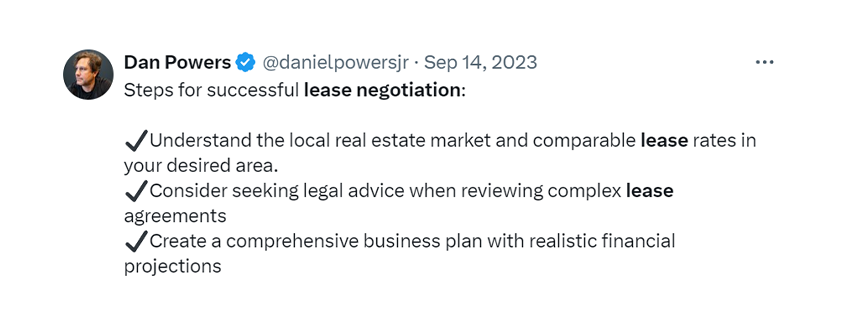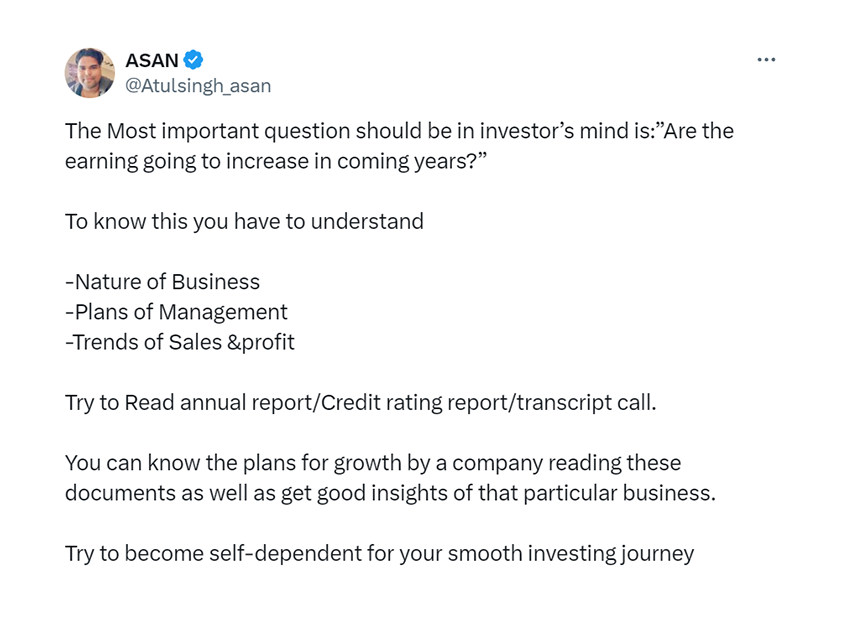Are you uncertain about how to structure your business plan to make it effective? Or do you find yourself struggling to identify the key qualities of a good business plan?
If yes, then you’re not alone. We’ve reviewed hundreds of plans, and the best ones always have a few things in common.
In this blog, we’ll walk through some of those must-have qualities—what they are, why they are important, and how to apply them to your own plan.
Including these qualities in your business plan will boost your chances of attracting investors, gaining stakeholder trust, and laying a solid foundation for your business’s success.
Let’s dive in.

1) Strong and well-defined executive summary
A strong executive summary is the first step to impressing your stakeholders. It’s an essential feature of a good business plan and should be positioned at the beginning.
An executive summary contains a short but high-level overview of your business objectives, scope, and key aspects. Remember, it’s an important document that 100% of those who open it will read.
We treat this as the “hook”—it needs to give just enough clarity, direction, and ambition to earn the reader’s time. That’s why our process starts with this section, not ends with it.

Here’s what a quality executive summary should include:
- A concise overview of your business objectives and mission.
- Key highlights of your product or service offering.
- Summary of your target market and competitive advantage.
- Brief financial projections and growth potential.
- A call-to-action for stakeholders or investors.
Tip: Place the executive summary at the beginning of your business plan to ensure readers quickly grasp your business's core elements and are encouraged to engage with the rest of your proposal.
2) Clearly defined objective
The best feature that makes your business plan impressive is how you showcase your objectives.
Without a clear objective, it becomes challenging for your stakeholders to understand “why” you’re seeking support and what you hope to achieve.
Therefore, be specific in defining your objectives—know exactly what you want and don’t want.
Remember, “Action is seamless when clarity is extreme.” Once you have clarity, the path to success becomes much easier to navigate.
When we review or write business plans, this is one of the first areas we refine. Clarity around objectives is what holds the entire strategy together.
Our business plan typically includes clear objectives and should feature:
- A well-defined value proposition that sets your business apart.
- A clear target market analysis with customer demographics.
- Detailed financial projections and funding requirements.
- A structured plan for execution and growth strategies.
- Specific, measurable short-term and long-term goals.
3) An in-depth market research to stand out
Well-defined market research is a hallmark of a quality business plan. If you want to make your business plan stand out, you need to do in-depth research on your market to impress your stakeholders.
"In business, the market is your battlefield; know it well." The better you understand your market, the more effectively you’ll be able to demonstrate its potential.
For instance, when we work with founders refining their business plans, this section is often where strong plans separate from generic ones. Investors don’t just want ideas; they want to know the market is worth betting on.
Hence, include your market research and exhibit it by:
- Highlighting key statistics that support your business case
- Defining the market size and potential for growth
- Presenting current consumer trends and behaviors
- Analyzing your competitors and their market positioning
Including statistics and analyses will help you gain the confidence of your stakeholders and assure them that you’re truly committed and well-prepared.
We’ve worked with clients who nailed this section; they listed numbers and tied the data back to real opportunity. That’s what helped their plans feel grounded and convincing.
4) A distinct competitive advantage
If you’re not different, you’re invisible.
Defining your competitive advantage is characteristic of a good business plan, and it will assure your stakeholders that your business has a unique position in the market.
Remember, Google was the 21st search engine in 1998, but its focus on delivering faster, more relevant search results through a superior algorithm set it apart from competitors. (You’re still using it! 🤷🏻)
We’ve worked with founders who had strong ideas but hadn’t quite nailed what made them different. During our planning process, we helped them pinpoint and clearly explain that edge; sometimes it was product design, other times, better support or pricing.
What we’ve seen work best in funded plans is this:
- Highlighting the specific thing you do better than competitors
- Showing how that advantage ties to what customers actually care about
- Making it obvious that your advantage is hard to copy
When that’s clear in the business plan, it builds investor confidence and makes your pitch harder to forget.
5) Realistic financial projections and key statistics
Include realistic and well-researched financial forecasts that provide a clear picture of potential revenue, expenses, and profitability.
A clear picture of your financial projections opens the door to informed decision-making for both you and your stakeholders.

Before writing begins, we usually help clients iron out the numbers that are important. Because a sharp plan with realistic CAC and margins tends to raise eyebrows…of course in a good way.
Moreover, a quality business plan built with real financial projections, stats, and key numbers creates credibility with investors.
It indicates that you’ve thoroughly analyzed your market and are prepared for the challenges ahead.
6) Flexibility for adaptability
Flexibility in your business plan is crucial for your organization to handle external factors. It should be able to adjust to changes in the market or unexpected challenges.
Having this flexibility allows you to change your strategy when needed, helping your business stay strong even during tough times.
“Your business plan should be flexible rather than rigid. Being adaptable allows a company to respond effectively to market changes and unforeseen challenges.” Informs data analyst Esther Magba.
Additionally, a flexible business plan should outline contingency strategies that address potential risks.
This might include alternative approaches for reaching your target market, backup funding options, or methods for managing supply chain disruptions.
We often help founders add backup routes they hadn’t considered: Second-channel marketing plans, reserve funding options, or fallback suppliers. It shows you’ve planned and made the business plan ready for real-world scenarios.
Remember: By anticipating challenges and preparing for them, you not only safeguard your business but also instill confidence in stakeholders.
7) Structured clarity and simplicity
With the average human attention span lasting only 8.25 seconds, presenting your business plan in a structured format is a key quality. A well-organized plan keeps stakeholders engaged, making it easier to understand your business vision quickly and effectively.
A well-organized plan helps readers quickly grasp the key points, which makes it easier for them to understand your business objectives, strategies, and financial projections.
By using headings, bullet points, and concise paragraphs, you can capture attention and maintain engagement, ensuring that your message is clear and memorable.
We regularly step in to declutter business plans: Reordering, simplifying, tightening. It’s not rewriting, it’s making sure your message isn’t missed.
This structured approach not only enhances readability but also demonstrates quality and thoughtfulness in your planning, making it more likely to resonate with stakeholders.
8) A professional presentation
A well-presented business plan is crucial for making a strong impression. It reflects your attention to detail, professionalism, and the seriousness with which you approach your business.
A polished, easy-to-read plan with clear formatting, consistent fonts, and error-free content demonstrates credibility. It helps stakeholders focus on the substance rather than getting distracted by formatting or grammatical mistakes.
Hence, to enhance the quality of your business plan, ensure it’s professionally presented and free of grammatical errors.
While tools like Grammarly, ChatGPT, or Gemini can help with basic polishing, we often work with founders to take it further by cleaning up layout issues, fixing formatting inconsistencies, and making sure key figures actually stand out the way they should.
9) Persuasive in nature
A quality business plan effectively persuades investors by highlighting unique selling propositions (USPs) and demonstrating the potential for return on investment (ROI).

It tells a compelling story about why the business is worth investing in. Beyond just showing financial gains, your business plan should highlight how the business can grow and sustain itself over the long term.
We’ve found that sharpening this part of the plan—by clearly laying out immediate wins and future growth—can make investor conversations move faster. That’s baked into our process.
Highlighting both short-term successes and long-term potential ensures your plan resonates with investors seeking a reliable, scalable opportunity.
Remember, a strong focus on growth and sustainability is a key quality of a high-quality business plan.
10) A clear focus on employee empowerment and work culture
Demonstrating how you empower and value your employees can elevate the quality of your business plan. Investors and stakeholders are more likely to support a business that fosters a positive work culture.
By showcasing your commitment to employee growth, well-being, and development, you highlight the long-term sustainability and strength of your business.

Empowered employees are more motivated, productive, and contribute directly to the company's success—this adds depth to your business plan and shows you value your most important asset: your team.
11) Alignment with business goals
Every section, from the executive summary to financial projections, clearly reflects how strategies are built to achieve business goals in a good business plan.
A well-aligned business plan ensures that all components work together seamlessly, showing a unified focus on objectives. This interconnectedness is a key quality that can make a business plan compelling and coherent.
Maintaining clarity in your plan demonstrates focus and greatly increases your chances of success, making it more appealing to investors and stakeholders.
For example, we conduct thorough review once a plan is written to ensure every aspect of it is strategically aligned with their business objectives. This helps present a focused, cohesive strategy to stakeholders.
The importance of this quality is clear—research reveals that highly aligned companies see a 58% increase in revenue and are 72% more profitable than those lacking alignment.
Wrapping up
In conclusion, including these 10 qualities in your business plan will significantly enhance its effectiveness and appeal to stakeholders. Further, these qualities illustrate the potential of your business.
Therefore, when crafting your business plan, ensure that you add these elements to impress stakeholders and simplify your efforts. However, writing a business plan is a complex task that often requires expertise.
A business plan consultant can help develop a clear, effective plan that meets industry standards and resonates with investors. Their experience can help streamline the process, allowing you to focus on your business's growth and success.
Writing a plan is easy. Writing one that actually supports your next step i.e., funding, scaling, decision-making, that takes a different kind of work. That’s the work we do at Plangrowlab. Quiet, strategic, and focused on your goals.
Get in touch with our experts today!
Frequently Asked Questions
What are the qualities of a good business plan?
A good business plan should be clear, comprehensive, realistic, professional, and adaptable. It must define objectives and strategies while addressing key areas like market analysis and finances.
What are the main features of a good business plan?
Main features include an executive summary, market research, marketing strategy, operations plan, and financial projections. The executive summary provides an overview, while the others detail the market, strategy, processes, and financial forecasts.
What characteristics make a business plan successful?
A successful business plan has a strong value proposition, thorough research, clear goals, risk assessment, and an engaging presentation. It articulates unique selling points as well as outlines measurable objectives and potential risks.
What are the features of a business plan’s financial section?
The financial section includes revenue projections, expense forecasts, profitability analysis, cash flow statements, and break-even analysis. It details expected income and costs, assesses profits, and provides cash flow insights.
Why is adaptability important in a business plan?
Adaptability is vital as it allows a business to respond to market changes and unforeseen challenges, ensuring long-term sustainability and growth.
How does a competitive advantage feature in a business plan?
A competitive advantage highlights what sets the business apart from competitors through unique selling propositions (USPs). It explains strategic benefits and outlines how to maintain this edge over time.


